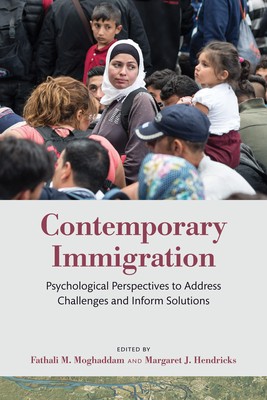
- We will send in 10–14 business days.
- Publisher: American Psychological Association (APA)
- ISBN-10: 1433836270
- ISBN-13: 9781433836275
- Format: 15.2 x 22.6 x 2 cm, minkšti viršeliai
- Language: English
- SAVE -10% with code: EXTRA
Contemporary Immigration (e-book) (used book) | bookbook.eu
Reviews
Description
There were around 281 million international migrants throughout the world in 2020, nearly 4% of the global population. In the decades to come, thanks to ongoing conflict, violence, political instability and the effects of climate change, these numbers will only rise. This book adopts a broad perspective of psychological science, encompassing both causal and normative behavior, to explore topics related to immigration including gentrification, "crimmigration," and trust between immigrants and host-society authorities. To some, immigrants represent a threat to the established population's jobs, standard of living, communities, culture, language, and safety. Others view immigrants as offering economic benefits to society including new sources of labor and consumption, and new technical skills and knowledge--not to mention the economic and personal benefits immigrants and their families might gain as well. While most immigrants leave their home countries for job opportunities, millions of others have been driven away due to conflict, extreme violence, political instability, and climate change. Authors in this book provide psychological reports of the immigration experience in North America, Europe, Australia, New Zealand, and South America, and address the challenges of integrating immigrants and refugees in host societies. While critically assessing the immigration crisis globally, this book offers practical solutions to problems of contemporary immigration derived from theoretical constructs such as the contact hypothesis and the common group identity model, while also highlighting key areas of ongoing and future research.EXTRA 10 % discount with code: EXTRA
The promotion ends in 22d.06:35:41
The discount code is valid when purchasing from 10 €. Discounts do not stack.
- Publisher: American Psychological Association (APA)
- ISBN-10: 1433836270
- ISBN-13: 9781433836275
- Format: 15.2 x 22.6 x 2 cm, minkšti viršeliai
- Language: English English


Reviews